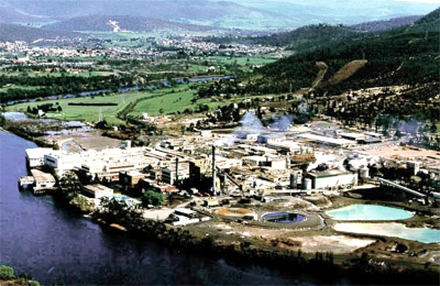Norske Skog’s demand and profits have come down mainly due to national restrictions on the movement of goods and people following the outbreak of the corona pandemic. The restrictions had severe negative impact on operations due to a sudden and considerable drop in demand for publication paper. Source: Timberbiz
The corona pandemic had significant negative effects on demand in the company’s markets.
“We have handled the challenging market conditions by adapting production to demand on all of our sites except for normal pellets operations at the Taupo plant in New Zealand,” Sven Ombudstvedt, CEO of Norske Skog said.
“The work to convert two newsprint machines to packaging grades at our Bruck and Golbey plants has high priority. Our strong financial platform will be important in our strategy to continue the transformation of our traditional publication paper operations into packaging and new green growth initiatives.”
Norske Skog plans to invest and convert two newsprint machines at Bruck and Golbey. The significant drop in demand for publication paper is not expected to be fully recaptured and may at some point in the near future also impact the operations at Norske Skog’s six publication paper machines in Norway.
The corona pandemic has ignited a call for a speedy transformation of the company’s Norwegian publication paper operations to other segments within the pulp and paper industry.
A Norwegian investment decision will depend on long-term, stable market and political conditions within energy, logistics and climate policy. Securing a robust operating environment with strong political support would be the first step in a green re-industrialisation of the entire energy processing industry in Norway.
Total annual production capacity for the group is 2.3 million tonnes. In Europe, the capacity is 1.9 million tonnes, while in Australasia the capacity is 0.4 million tonnes.
Europe
Operating income decreased from the previous quarter due to lower sales volumes mainly caused by reduced demand. Sales prices remained relatively stable throughout the quarter. Variable cost per tonne decreased in the quarter due to an underlying reduction in demand for input factors.
In Norway, Norske Skog was forced to resell unused energy contract volumes at prices substantially below contract prices. Fixed costs were lower due to periodic temporary layoffs caused by machine down time.
According to Eurograph, demand for newsprint in Europe decreased by 21% through May compared to the same period in 2019. SC magazine paper demand decreased by 15%, while demand for LWC magazine paper declined by 21%. Our capacity utilisation was 70% in the quarter, down from 86 % in the previous quarter.
Australasia
Sales volume and operating income decreased from the previous quarter due to market effects caused by reduction in demand. Due to a sudden drop in the Australasian demand for publication paper, the export to low priced Asian market increased from the previous quarter.
Total income includes gain from the sale of the Tasmanian forest.
Variable cost per tonne decreased in the quarter due to an underlying reduction in demand for input factors. Fixed costs were down in the quarter due to temporary layoffs.
According to official trade statistics, demand for newsprint in Australasia declined by 24% through June compared with the same period in 2019. Demand for magazine paper declined by 19%. Capacity utilisation was 65% in the period, down from 85% in the previous quarter.
Outlook
The continued softening of the national restrictions caused by the global coronavirus pandemic, is expected to have a positive effect on the demand for publication paper as the retail trade in general will increase.
The closure of several printed publications globally may indicate that at least part of the demand for publication paper will not return to the market. The market uncertainty and low capacity utilisation may have a negative impact on sales prices in the short run. However, lower sales prices in the second half of 2020 will to some degree be offset by a decrease in input costs from energy, pulpwood and recovered paper.
The group will continuously monitor and evaluate the impact of the corona situation on the company’s operations and business outlook. Further operational as well as long-term structural measures could be implemented at future dates.






